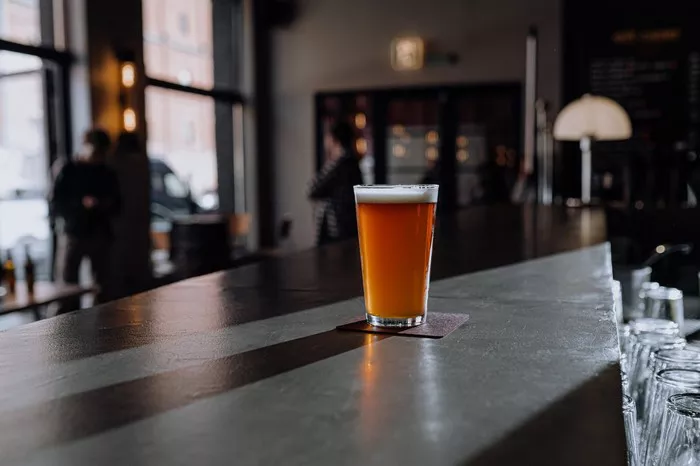When it comes to the age-old debate of whether it’s better to drink beer or wine, opinions are as diverse as the beverages themselves. Both beer and wine have been cherished for centuries, each offering unique flavors, cultural significance, and potential health benefits. However, determining which one is “better” requires a closer examination of various factors, including taste, health implications, social context, and personal preferences.
Taste: Exploring the Palate Pleasures
One of the most subjective aspects of the beer versus wine debate is taste. Beer aficionados extol the diverse range of flavors found in different styles of beer, from hoppy IPAs to rich stouts. On the other hand, wine enthusiasts praise the complexity of aromas and tastes present in various grape varieties and winemaking techniques. Ultimately, whether beer or wine is better in terms of taste depends on individual preferences and the occasion.
Health Implications: Weighing the Benefits and Risks
When considering the health implications of drinking beer or wine, moderation is key. Both beverages contain antioxidants and other compounds that may confer health benefits when consumed in moderation. Red wine, in particular, has been associated with a reduced risk of heart disease due to its high levels of resveratrol. Conversely, excessive alcohol consumption, regardless of the source, can increase the risk of liver disease, certain cancers, and other health problems. Therefore, whether it’s better to drink beer or wine from a health perspective depends on factors such as quantity consumed, individual health status, and overall lifestyle choices.
Social Context: Cheers to Culture and Tradition
Beer and wine play distinct roles in various cultures and social settings. In many countries, beer is deeply ingrained in social gatherings, sporting events, and celebrations. Its accessibility, lower alcohol content, and wide range of styles make it a popular choice for casual get-togethers. Conversely, wine often carries associations with sophistication, fine dining, and special occasions. Whether it’s better to drink beer or wine in a social context depends on the cultural norms, personal preferences, and the nature of the event.
Nutritional Value: Parsing the Components
From a nutritional standpoint, both beer and wine offer distinct advantages and drawbacks. Beer typically contains carbohydrates, protein, B vitamins, and minerals such as potassium and magnesium. However, it can also be calorie-dense and may contribute to weight gain if consumed in excess. In contrast, wine is lower in carbohydrates and calories but contains alcohol, which provides empty calories and can impair liver function over time. Whether it’s better to drink beer or wine from a nutritional perspective depends on factors such as calorie intake, dietary preferences, and overall nutritional needs.
See Also: Is Ginger Beer and Ale the Same?
Culinary Compatibility: Enhancing the Dining Experience
Pairing food with the right beverage can elevate the dining experience to new heights. Both beer and wine offer unique flavor profiles that complement a wide range of cuisines and dishes. Beer’s carbonation and bitterness can cut through rich and fatty foods, making it an excellent match for burgers, barbecue, and spicy dishes. Wine, with its acidity and tannins, pairs well with a variety of foods, from seafood and poultry to pasta and cheese. Whether it’s better to drink beer or wine with a meal depends on the specific flavors and textures involved, as well as personal preferences.
Economic Considerations: Assessing Affordability
When it comes to affordability, beer often has the upper hand over wine. Mass-produced beers are generally less expensive per serving than wine, making them a budget-friendly option for many consumers. Additionally, the craft beer movement has led to an explosion of small breweries producing high-quality, artisanal beers at competitive prices. Conversely, wine prices can vary widely depending on factors such as grape variety, region, and production methods. Whether it’s better to drink beer or wine from an economic perspective depends on individual budgets, preferences, and priorities.
Environmental Impact: Sipping Sustainably
As environmental concerns become increasingly important, many consumers are considering the ecological footprint of their beverage choices. Both beer and wine production can have significant environmental impacts, including water usage, pesticide use, and greenhouse gas emissions. However, some argue that wine production, particularly in regions with water scarcity or fragile ecosystems, may be more environmentally intensive than beer production. Whether it’s better to drink beer or wine from an environmental standpoint depends on factors such as production methods, sourcing practices, and regional considerations.
Conclusion: A Matter of Personal Preference
In conclusion, the question of whether it’s better to drink beer or wine is ultimately a matter of personal preference and individual circumstances. Both beverages offer unique flavors, cultural significance, and potential health benefits. Whether enjoying a cold beer at a summer barbecue or savoring a glass of wine with a gourmet meal, the choice between beer and wine depends on factors such as taste, health considerations, social context, culinary compatibility, and personal values. Ultimately, the best beverage is the one that brings enjoyment and enhances the overall experience. So, whether you raise a pint of beer or a glass of wine, here’s to savoring life’s simple pleasures in moderation. Cheers!


